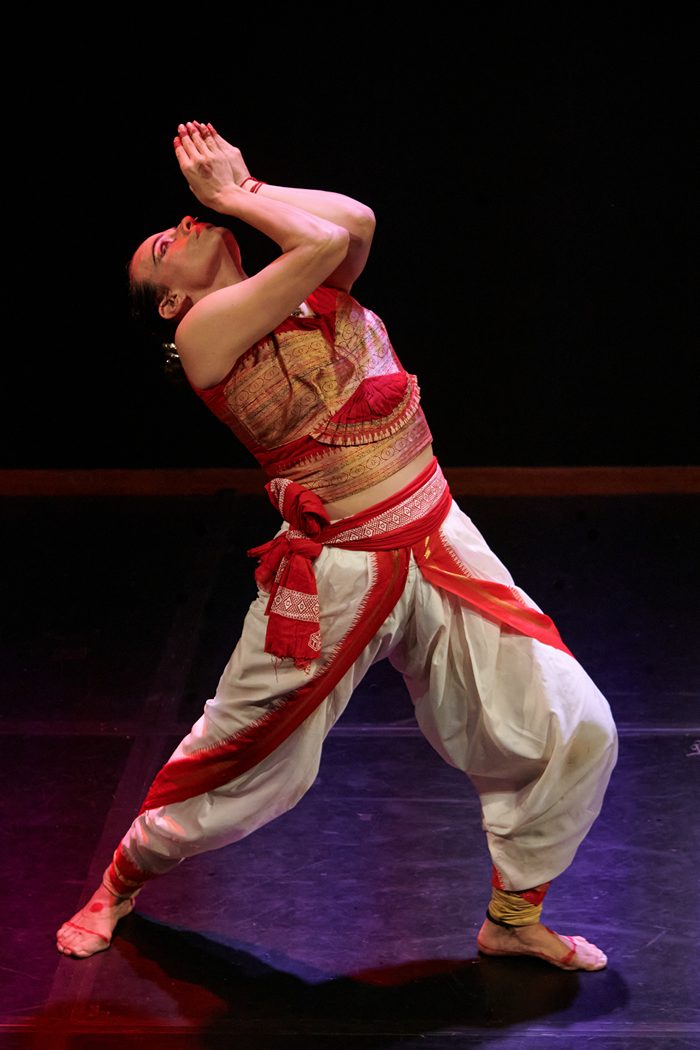
Kalaripayatt: History and Philosophy
Kalaripayatt is one of the world’s most ancient martial traditions, originating in Kerala, India. It is traditionally practiced in a sunken, thatched-roof arena called a kalari, a word derived from the Sanskrit khaloorika, meaning “martial training hall.” More than a system of combat, Kalaripayatt unites physical skill, healing science, and spiritual devotion in a holistic discipline.
Legendary Origins
According to Kerala folklore, the warrior-sage Parashurama reclaimed land from the sea and established 42 kalaris, training 21 disciples in the art of warfare. Other traditions say Parashurama learned directly from Lord Shiva, or that the art emerged from Shiva’s own footsteps after the Daksha-yajna. These myths root the practice in divine guidance and heroic beginnings.

Historical Evidence
While the legends reach far back, scholars generally place the codification of Kalaripayatt in the medieval period, around the 12th century CE. References to kalari appear in early Tamil Sangam literature — such as the Akananuru and Purananuru — indicating that martial training halls have been part of southern Indian culture for centuries.

Terminology and Sacred Space
The word kalari and its linguistic cousins (Tamil kalloori, Kannada garanḍi) all refer to places of martial instruction. Ancient Sanskrit hymns even describe the goddess as “she who dwells in the khaloorika,” linking the training hall to divine presence. This idea still shapes how kalaris are regarded today — as both training grounds and sacred sanctuaries.
The roots speak through the body.
Step into practice and let the ancient art breathe within you.
Philosophical Foundations
A Holistic Path
In Malayalam tradition, Kalaripayatt is described as a complete body–mind discipline. Training follows a progression: meithari (body conditioning), kolthari (wooden weapons), ankathari (metal weapons), and verum kai (unarmed combat). These stages build strength, agility, precision, and mental focus, nurturing not just the fighter but the whole person.

Healing Through Ayurveda
Integral to the practice is the uzhichil oil massage — a therapeutic treatment that improves flexibility, speeds recovery, and prevents injury. Combined with herbal remedies and wound care, this reflects Kerala’s Ayurvedic tradition, where the healer’s art is inseparable from the warrior’s.

Dhanurveda Influence
Some masters trace Kalaripayatt’s roots to the Vedic Dhanurveda, the ancient science of warfare. Medieval Malayalam texts suggest that certain techniques — including bone-locking and breaking methods — were inspired by Sanskrit martial manuals, blending Dravidian combat traditions with Vedic martial knowledge.
Guru–Śiṣya Tradition
Training is guided by the sacred bond between teacher and disciple. Lord Shiva is honored as the Adi Guru (first teacher), while Parvati, as the fierce Kali, is revered as the mother-warrior. Inside every kalari stands a consecrated altar (guruthipeedam) where both Shiva and Shakti are invoked, symbolizing the union of wisdom and strength.

Goddess Khaloorika in Kalari Tradition
The Tutelary Deity
Every traditional kalari is dedicated to a guardian goddess, often known as Kalari Devi or Khaloorika Devi — a fierce manifestation of Durga such as Bhadrakali or Chamundi. The very name “Khaloorika” comes from a Devi hymn, meaning “she who dwells in the kalari,” affirming the goddess’s constant presence in the arena.
Forms and Worship
In many kalaris, a four-armed Kali or Bhadrakali idol presides over the sacred space. Before each training session, rituals honor both the Mother Goddess and the Guru. A fire offering (guruthi) may be made to invoke her power, reinforcing that martial skill is rooted in divine blessing.
Temple Heritage
Over time, some historic kalaris became temples, preserving the connection between martial practice and goddess worship. One notable example is the Karimuttam Kalari Temple near Kayamkulam, which enshrines a four-armed Bhadrakali as the Kalaridevi.
In essence, Kalaripayatt is not merely a martial art, it is a living tradition where combat, healing, and devotion meet. Guided by the Guru, protected by the Goddess, and rooted in centuries of history, it continues to embody the unity of body, mind, and spirit.
Begin your journey with Kalaripayatt.
Whether you’re seeking strength, discipline, or connection with an ancient lineage, classes are open to all levels. Online and in-person training is available, all you need is curiosity.